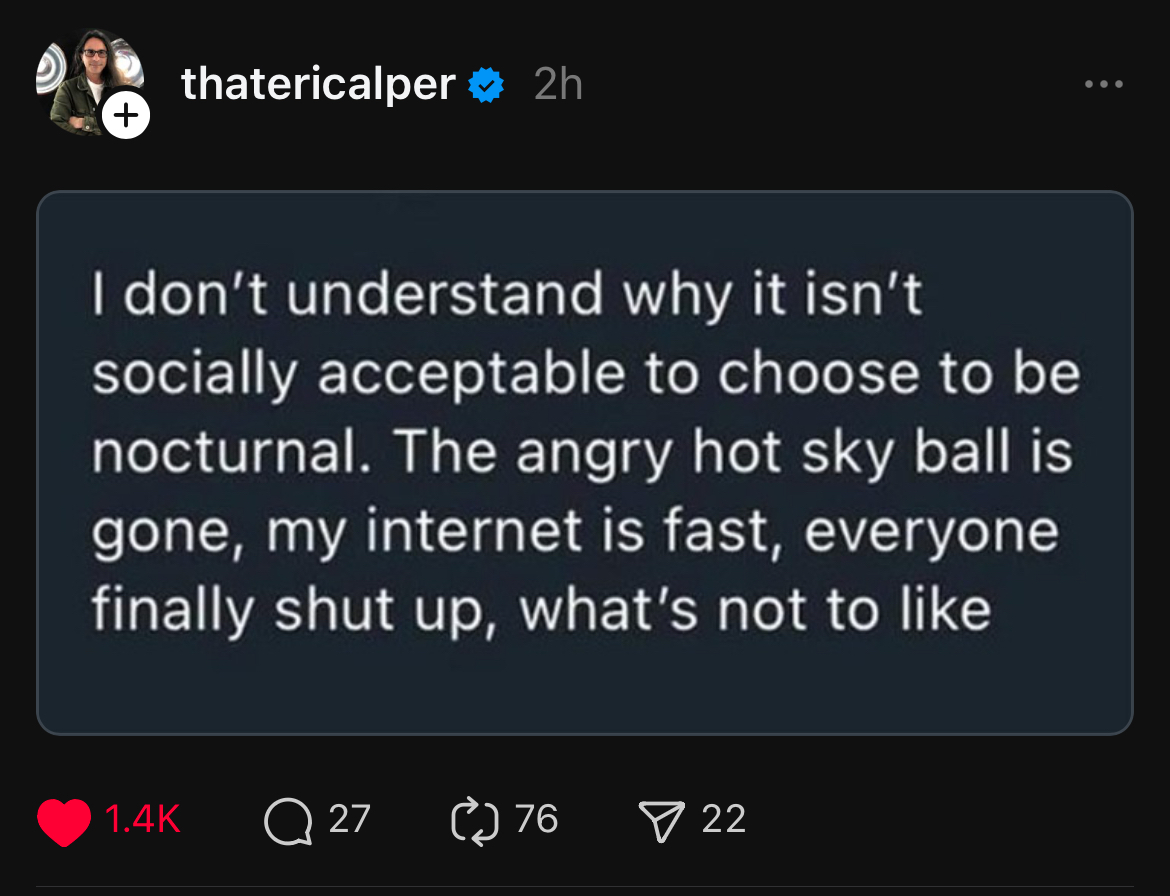this post was submitted on 29 Oct 2024
834 points (99.5% liked)
196
18424 readers
839 users here now
Be sure to follow the rule before you head out.
Rule: You must post before you leave.
Other rules
Behavior rules:
- No bigotry (transphobia, racism, etc…)
- No genocide denial
- No support for authoritarian behaviour (incl. Tankies)
- No namecalling
- Accounts from lemmygrad.ml, threads.net, or hexbear.net are held to higher standards
- Other things seen as cleary bad
Posting rules:
- No AI generated content (DALL-E etc…)
- No advertisements
- No gore / violence
- Mutual aid posts are not allowed
NSFW: NSFW content is permitted but it must be tagged and have content warnings. Anything that doesn't adhere to this will be removed. Content warnings should be added like: [penis], [explicit description of sex]. Non-sexualized breasts of any gender are not considered inappropriate and therefore do not need to be blurred/tagged.
If you have any questions, feel free to contact us on our matrix channel or email.
Other 196's:
founded 2 years ago
MODERATORS
you are viewing a single comment's thread
view the rest of the comments
view the rest of the comments

Bad for your long term health
Not sure what you mean by not socially acceptable, there’s a lot of night work
Any studies concluding a corelation between being awake at night and poor health are likely measuring many confounding factors. There's no way to isolate that variable. Certain groups are more likely to stay up into the night, which could equally be the cause. It also requires, as the post implies, giving up certain activities. Those activities may promote good health in some way.
Any actual medical condition caused by nighttime activity could be managed, like vitamin D deficiency. The societal factors can't be, although if it was more common and acceptable that could level out some of the variables.
No worries, I take Vitamin D pills. I have surpassed my sun-addicted brethren.
Circadian clock issue unfortunately
Studies show that losing weight is good for your health. What happens if you give that advice to someone who's underweight?
Different people have different needs and the studies on sleeping haven't yet caught up to that level of science.